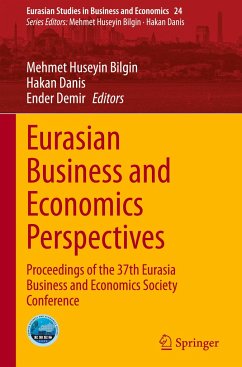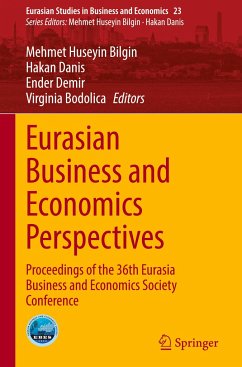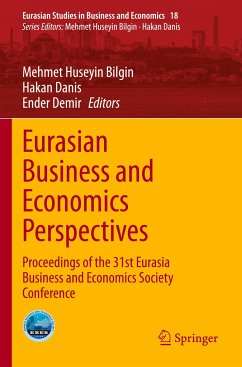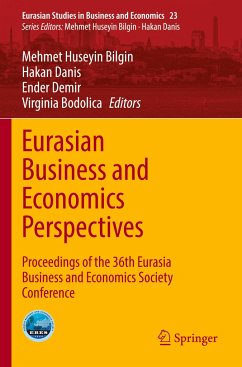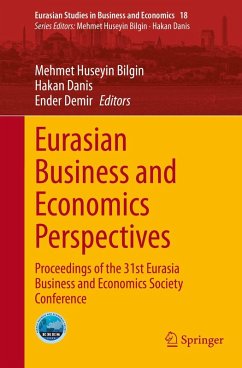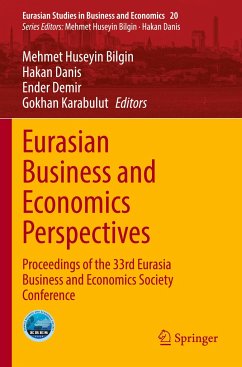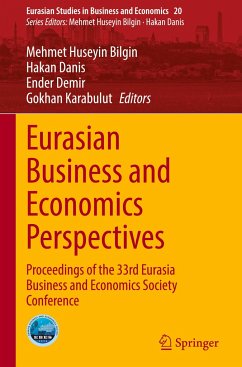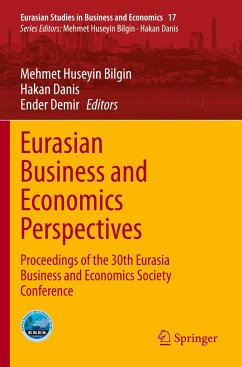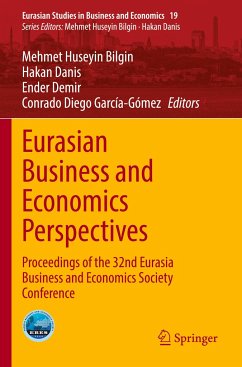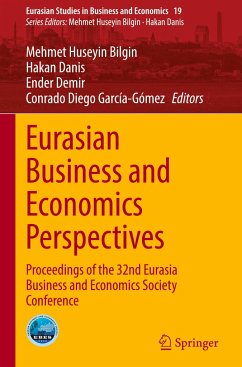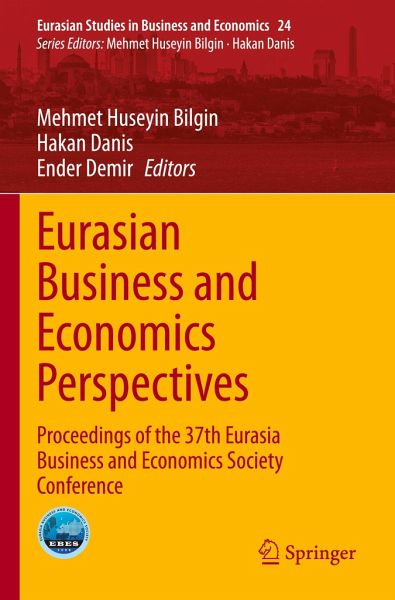
Eurasian Business and Economics Perspectives
Proceedings of the 37th Eurasia Business and Economics Society Conference
Herausgegeben: Bilgin, Mehmet Huseyin; Danis, Hakan; Demir, Ender
Versandkostenfrei!
Versandfertig in 6-10 Tagen
151,99 €
inkl. MwSt.

PAYBACK Punkte
76 °P sammeln!
EBES conferences have been intellectual hub for academic discussion in economics, finance, and business fields and provide network opportunities for participants to make long lasting academic cooperation. This is the 24th volume of the Eurasian Studies in Business and Economics (EBES's official proceeding series) which includes selected papers from the 37th EBES Conference - Berlin. The conference was jointly organized with the GLO (Global Labour Organization, a global, independent, non-partisan and non-governmental organization based in Germany) with the support of the Istanbul Economic Resea...
EBES conferences have been intellectual hub for academic discussion in economics, finance, and business fields and provide network opportunities for participants to make long lasting academic cooperation. This is the 24th volume of the Eurasian Studies in Business and Economics (EBES's official proceeding series) which includes selected papers from the 37th EBES Conference - Berlin. The conference was jointly organized with the GLO (Global Labour Organization, a global, independent, non-partisan and non-governmental organization based in Germany) with the support of the Istanbul Economic Research Association and in collaboration with the FOM University of Applied Sciences (Germany). Due to COVID-19, the conference presentation mode was virtual. In the conference, 177 papers by 379 colleagues from 54 countries were presented. Both theoretical and empirical papers in this volume cover diverse areas of business, economics, and finance from many different regions. Therefore, it providesa great opportunity to colleagues, professionals, and students to catch up with the most recent studies in different fields and empirical findings on many countries and regions.





